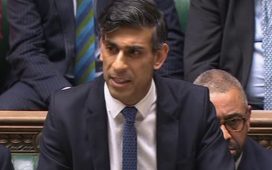The Week’s daily round-up highlights the five best opinion pieces from across the British and international media, with excerpts from each.
1. Matthew Lynn in The Daily Telegraph
on diverging priorities
The new tier system will quickly collapse unless No 10 learns from the chaos of the last one
“London’s Mayor Sadiq Khan was grand-standing about his own city, and then found the capital was locked down simply to try and keep Manchester quiet. Some areas were struggling to stay in Tier 1 to preserve local jobs, while others demanded to go up to 3 to get extra funding. It was politics at its very worst: self-interested, show-boating, hysterical and dis-organised. This time around it should be very different. First, we need to have a completely open process, and base any local restrictions on rising infection rates, using the most up-to-date figures available. Pressure from local politicians and MPs shouldn’t make any difference. The Monetary Policy Committee makes independent judgements on interest rates: we could create something similar for the coronavirus.”
2. John D. Sutter on CNN
on differing opinions
An expert’s advice on talking to the climate skeptic in your life
“A couple of years ago, a retired coal miner, who’s since become a friend, walked me to the edge of a canyon in Utah to marvel at the millions of years of geologic history visible in the pink-and-orange layers of sedimentation. The Earth is big and old and awesome and always changing, he told me. People are too small – and our time too short – to really alter the planet. In moments like these, I don’t think there’s much to say. I trust my instincts. I try to understand – to ask questions, to relate. I don’t want to convince anyone of anything; I just want to be present and listen. That can be painfully difficult, though, when it comes to issues of science – like Covid-19 and the climate crisis. There is only one set of scientific facts, but not all of us acknowledge them as such.”
3. Neil Woods in The Independent
on police powers
I was a ruthless undercover detective, but the new ‘spycops’ law is a catastrophe waiting to happen
“When I shoplifted to build my ‘legend’ amongst communities of homeless drug addicts – I knew those designer trainers would be entered as evidence and eventually returned to the shop. When I bought drugs with other addicts, I was scrupulous that they take the bag from the dealer first, then pass it to me – so that it could never be said that I had supplied anyone drugs. Both the letter and the spirit of the law are crucial here. We are told this bill merely formalises in statute what already happens in practice. No. No it doesn’t. It changes everything. Because, in providing blanket immunity, it removes that crucial legal and psychological boundary that we are always subject to the decision of a court – not just fellow police.”
4. Mark Muhannad Ayyash on Al Jazeera
on mixed messages
The IHRA definition will not help fight anti-Semitism
“Of the examples presented in the IHRA definition, three in particular stand out. The first casts as anti-Semitic any argument in which we may find the following feature: ‘Denying the Jewish people their right to self-determination, eg, by claiming that the existence of a State of Israel is a racist endeavor.’ The list of academic articles and books that would become anti-Semitic if we accepted this example is indeed astounding. It would include the writings of Hannah Arendt, Edward Said, Gilles Deleuze, Judith Butler, Joseph Massad, Achille Mbembe, Robert Wolfe, Angela Davis, Hamid Dabashi, Audra Simpson and many others. In fact, an entire academic journal, Settler Colonial Studies, would have to be removed from all of our libraries.”
5. Rhiannon Lucy Cosslett in The Guardian
on fresh perspective
Young women are watching Diana’s story in The Crown with horror
“These days, many, many more young women identify as feminists, and as with the treatment of Monica Lewinsky, many of them are looking at the Diana story with horror. This is a generation raised in a celebrity culture obsessed with female pain and, now they are seeing the excoriation of the Duchess of Sussex in the press, they are wondering how much has really changed. Prince Harry’s wife has similar humanitarian instincts to his mother, and that, as well as her race, has made her an easy target in a longstanding culture war targeting campaigners for social justice and racial equality. These same warriors want to leave the wider history of the British establishment untouched. Stories must remain unexplored, judged by the standards of the time, not by ours.”













